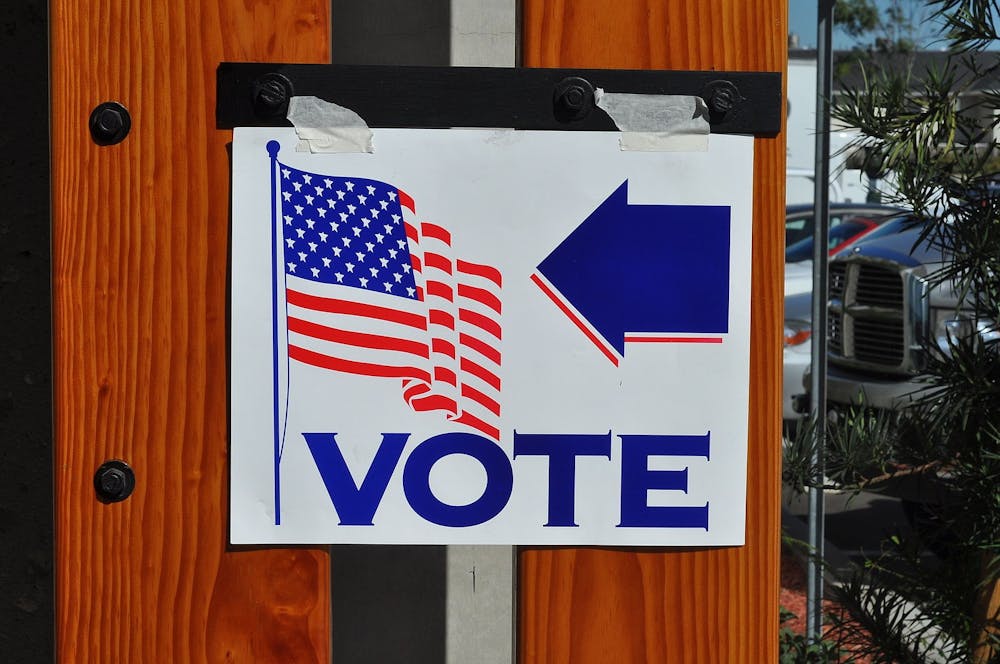This past Tuesday, Nov. 2, was Election Day. To my great shame, I did not participate in my state’s local elections. When I asked my friends at Princeton if they had cast their ballots, not a single one could answer affirmatively. This is not a reflection of any concerted decision to withhold our votes -- the vast majority of my friends on campus are, to some degree, politically engaged. Rather, this was a consequence of each of us having a full schedule of Princeton classes on Tuesday.
For students who live relatively close to Princeton, the day off would have secured the opportunity to return home and vote in-person. Of course, for those who live in states farther than New York or Pennsylvania, the day off from school would not have enabled students to return home to vote within a mere 24 hours.
No Princeton student forgets about an upcoming day off from school. The impending excitement of respite from the week’s work would ensure students are reminded about the upcoming election. A day off from classes would serve as encouragement for politically engaged students to request absentee ballots or participate in Early Voting.
Many of the results of Tuesday’s elections were unexpected. In Virginia, Democratic candidate Terry McAuliffe suffered a surprising loss to Republican Glenn Youngkin. This marks Virginia’s first statewide Republican victory in 12 years. Earlier, Youngkin contested Biden’s win, and was subsequently endorsed by Trump. He is also a proponent of banning the implementation of courses on critical race theory in all K-12 classrooms. In other words, Youngkin is far from a moderate Republican, which renders his gubernatorial success even more surprising.
Equally, if not more, shocking was the closeness of the gubernatorial race in New Jersey, a state that has also been dependably blue for decades. Democrat incumbent governor Phil Murphy was narrowly reelected over Jack Ciattarelli, who, like Youngkin, is a staunch conservative. Ciatarelli appeared at a “Stop the Steal” rally in January, protesting Donald Trump’s loss; he also opposes abortions that take place more than 20 weeks after conception, placing him firmly in the right wing.
Though local elections are often overlooked, they serve as very clear indicators of public opinion; their outcome is not determined by the electoral college, but by popular vote. Although both Youngkin and Ciatarelli’s policy preferences do not align with my own, I do not bring them up in order to dispute them; rather, their mention is an effort to highlight the implications of local elections, and the power of individual contribution to said elections.
The rise of candidates like Youngkin and Ciattarelli illuminates the fact that the tide of American politics is changing; though our political system is dismissed by most as unmoving, it is, in fact, very dramatically taking new form. This new form is created by active participation in elections like the ones that my friends and I could not vote in this week.
“Princeton in the nation’s service and the service of humanity” is our University’s informal motto. If Princeton students are actively disincentivized to participate in US political affairs in fear of missing class and falling behind on work, how can the University claim that it is committed to servicing the nation? When one votes, one votes out of protective instinct. To vote is to express faith that a given candidate will improve the sphere within which one operates and to express faith in said candidate’s ability to serve and protect both the voter and the voter’s loved ones. To not vote, then, is to act without conviction for the betterment of the lives of oneself and one’s community. If students are not given Election Day off, Princeton will operate in the disservice of humanity. It is time to change our academic calendar.

Andi Grene is a sophomore from New York City. She can be reached at agrene@princeton.edu.









